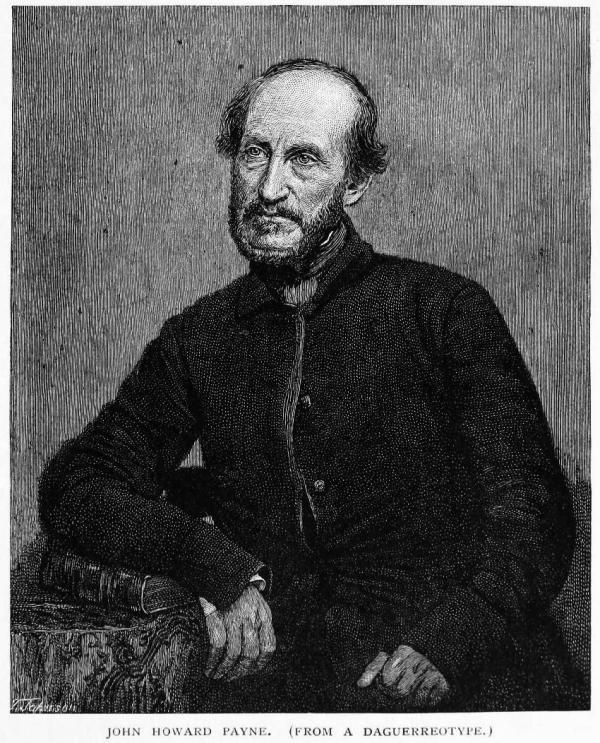Dripping Life May 28

Few, if any, of us are familiar with the name, John Howard Payne, an actor, author, playwright and poet of the early 19th century. I only stumbled onto his name while researching a book I’m working on…and thought I’d share what I learned.
First, the song - “Home, Sweet, Home.”
You may have seen wall signs, particularly in a Bed & Breakfast, reading, “Home, Sweet, Home.” My sister made a similarly framed cross-stitch, saying “Home, Sweet, Home,” and presented it as a housewarming gift when we moved into our first home in Austin.
Right about now, especially since quarantine started, we may not be thinking “home is so sweet,” but when John Howard Payne wrote the lyrics to the song in 1823 with music by Englishman Sir Henry Bishop for Payne’s opera, “Clari, or the Maid of Milan,” it was a beautiful song poem.
Payne had recently fled to Paris from London to escape his unpaid debts. When “Clari” premiered, critics ranked it notably inferior in composition with the exception of one song that the main character, Clari sings, described as a simple ballad.
Later, Payne described writing it as “mixing ink with tears” because he was destitute and living on the hospitality of fellow literati Charles Lamb and Washington Irving. He also admitted missing “his home in East Hampton and the longing of the lonely man for the scenes of his childhood.”
The manager of the Parisian opera house where “Clari” premiered offered the practically penniless Payne £ 150 Pound sterling (which would equal about £ 17,972.26 pounds today, or $21,884.19 U.S. dollars) for all rights to the opera. Then the theater manager turned around and sold approximately 100,000 copies of the opera almost overnight. Had Payne retained royalties on all sales, he would have been financially set for life.
Staving off starvation, he returned to Washington, D.C., where he wrote magazine and newspaper articles and was -- thanks to his local patrons, which included the philanthropist and fine art collector William Wilson Cocoran of the Smithsonian’s Corcoran Gallery -- eventually was made consul in Tunis in 1842. Payne died in Tunis (now Tunisia), on April 9, 1852.
He was buried in the little Christian Cemetery of St. George, where a white marble plaque with “Home, Sweet, Home” was placed on his grave.
Fast forward 30 years to Washington, D.C., where businessman W.W. Corcoran was driving past the Ebbitt Hotel, when he heard a band playing the lilting “Home, Sweet, Home.”
“Thinking of the irony of the American poet who penned such beautiful words, yet was buried in a foreign land, Corcoran soon had secured permission from the Payne family and was arranging for the poet’s casket to be exhumed and brought back to the U.S.”
He was buried with much pomp and circumstance by John Gawler Sons, a D.C. funeral firm still in operation, which has buried many notables, including President John F. Kennedy.
Payne was laid in a space in the Corcoran estate lot in Oak Hill on June 8, 1883, in the beautiful cemetery the philanthropist founded.
Attended by more than 5,000 people, the procession from the funeral home to the cemetery included a hearse drawn by four black horses, followed by the 21st U.S. President Chester A. Arthur and his cabinet.
Also in the entourage were carriages transporting justices of the U.S. Supreme Court, members of the House and Senate, members of the diplomatic corps, and a detachment of soldiers, followed by the U.S. Marine Band—all marching to the baton of a young John Philip Sousa.
Today, looking southward over Washington to Georgetown Heights, is a slightly larger-than-life-size bust, set on a pedestal of granite, rising beside the final resting place of the composer of “Home, Sweet, Home.”
The man depicted is in mid-life, draped in classic Roman toga, sad-faced with drooping mustache. The inscription reads: In Memory of John Howard Payne Author Of “Home, Sweet, Home” Born June 9, 1791, Died April 10, 1852, Erected A.D. 1883.



